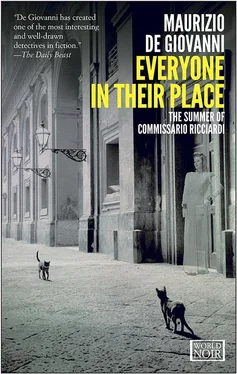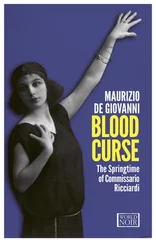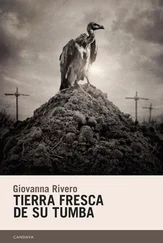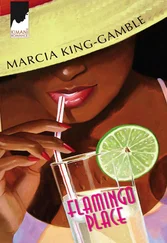Maurizio de Giovanni - Everyone in Their Place
Здесь есть возможность читать онлайн «Maurizio de Giovanni - Everyone in Their Place» весь текст электронной книги совершенно бесплатно (целиком полную версию без сокращений). В некоторых случаях можно слушать аудио, скачать через торрент в формате fb2 и присутствует краткое содержание. Жанр: Исторический детектив, Полицейский детектив, на английском языке. Описание произведения, (предисловие) а так же отзывы посетителей доступны на портале библиотеки ЛибКат.
- Название:Everyone in Their Place
- Автор:
- Жанр:
- Год:неизвестен
- ISBN:нет данных
- Рейтинг книги:4 / 5. Голосов: 1
-
Избранное:Добавить в избранное
- Отзывы:
-
Ваша оценка:
- 80
- 1
- 2
- 3
- 4
- 5
Everyone in Their Place: краткое содержание, описание и аннотация
Предлагаем к чтению аннотацию, описание, краткое содержание или предисловие (зависит от того, что написал сам автор книги «Everyone in Their Place»). Если вы не нашли необходимую информацию о книге — напишите в комментариях, мы постараемся отыскать её.
Everyone in Their Place — читать онлайн бесплатно полную книгу (весь текст) целиком
Ниже представлен текст книги, разбитый по страницам. Система сохранения места последней прочитанной страницы, позволяет с удобством читать онлайн бесплатно книгу «Everyone in Their Place», без необходимости каждый раз заново искать на чём Вы остановились. Поставьте закладку, и сможете в любой момент перейти на страницу, на которой закончили чтение.
Интервал:
Закладка:
Sunday is a war, for the children as well; the luckest ones have been dreaming of this day all week long, with ink-stained fingers, breathing in chalk dust, at their desks or behind the blackboards, on their knees in punishment. The other children have thought about it too, chasing barefoot after the rats in the vicoli or fighting off stray dogs for a scrap of stale bread in the garbage discarded by the well-to-do palazzi of Santa Lucia. They’ll meet later at the Villa Nazionale, casting greedy glances at the toy stalls, dreaming of floating away hanging from a red balloon on a long string or making their stern fathers jump in the air at the sound of the firecrackers that can be heard going off every so often; the fathers targeted by the vendors with their smiles as they hawk their wares, the children driven off rudely with clubs and sticks.
Sunday is a war. But it seems like a holiday.
Ricciardi had slept very badly, though that was hardly a change. He recalled a chaotic dream, where he was mixing up Livia and Adriana, both women talking to him in threatening tones about rings and apartments. Behind them, Enrica’s elegant and well-dressed boyfriend, looking at him and laughing at him, for who knows what reason. And he was trying to open a book that he’d bought the day before and immediately concealed from the intrusive and gossipy eyes of his tata , underneath a loose floor tile behind his armoire; but he couldn’t do it, the pages were massive and he had no strength left in his hands.
When he woke up in the morning, his forearm tingled painfully with pins and needles: he’d slept with his full weight on it. He couldn’t move it, and the anxiety of his dream spread to his waking life. On the other hand, the ghosts of the living and the dead were gone, leaving a new and unfamiliar dread in his heart.
He had been tempted to break the promise he’d made to Don Pierino, reluctant as he was to plunge into the frantic chaos of the day, in all that heat: he really didn’t feel like celebrating. But he had more than one debt of gratitude toward the little priest and he didn’t want to disappoint him yet again, and so he trudged off wearily toward the waterfront. Along the way he cultivated fractured thoughts: Livia and her determination to stay on, Enrica and her closed window, Adriana and her sad fate. He thought once again of the book he’d purchased and concealed, and he wondered if he’d ever have the nerve to pull it out and read it. And he thought of his tata , too, and how, when she saw him going out on a Sunday morning, she had smiled and made reference to what she supposed was a date the young master had, perhaps with a woman from out of town: that woman had a gift of second sight, or else some anonymous informer. He hadn’t replied.
There was something different in the air: it was still oppressively muggy and humid, but the sky was gray and it smelled of damp. Maybe it would rain, eventually, he thought. As he walked, he saw the crowd swelling, families and knots of friends going to enjoy one of the city’s most beloved and traditional festivals. By the time he got to Via Santa Lucia, the crowd was enormous, and the neighboring marina, where the allegorical procession would conclude, was already packed.
Ricciardi had heard something about the ’Nzegna festival, but he’d never made an effort to understand the ritual nature of it, nor had he ever bothered to go to it. He knew that the moment everyone was waiting for was the procession and that, as usual, everyone took advantage of the opportunity to dance, sing, and commit every sort of crime imaginable, under the cover of the massive crowds; the holding tanks at police headquarters during this kind of event tended to be incredibly full.
Shoved along by the crowd he found himself not far from the wharf from which, ten feet above the surface of the water, a number of scugnizzi were hurtling straight down in spectacular dives, to the applause of hundreds of sweaty spectators. Not all the dives were successful, though: Ricciardi saw the image of a little boy looking out to sea, standing erect on the wooden structure of the wharf. He was looking out to sea from an unnatural angle, though, because his neck was snapped a little below the nape; the translucent pallor and the wrinkly skin pointed Ricciardi to a delayed recovery of the body and an extended stay in the water before the boy died. He heard his message, loud and clear in spite of the noise:
“ One last dive. Just let me take one last dive and then we can go. ”
And that’s exactly what it was, thought the commissario. The last dive: the very last dive.
Unsuspecting, the kids kept climbing up to the dock and leaping off, each time passing through the image of the little corpse. He wondered where the mother could be, in what madness she was extinguishing her grief. In the heat and the crowd, Ricciardi shuddered and walked away.
XLVI
The entrance to the church was a double staircase, covered with beggars who clutched at the clothing of all those who passed, demanding alms. On the street, musicians and strolling vendors were raising a din, a dissonant concert of shouts and out-of-tune instruments.
The sidewalk out front was busy with madonnari hard at work, sidewalk artists who specialized in drawings of the Virgin Mary, their hands aglow with colorful chalk, their faces sweaty and focused: the beautiful drawings that they created reproduced the story of the chained crate that Maione had mentioned, showing it being thrown onto the beach of Santa Lucia from a tempest-tossed sea. The crowd, suddenly seized by a new respect for the visual arts, carefully avoided trampling the figures and the landscapes that were gradually covering the sidewalks and street.
It was only with some difficulty that Ricciardi made his way into the church, and more than once he considered giving up and returning home; but he’d made it that far and he wanted Don Pierino to catch at least a glimpse of him, to exchange a wave and a nod, and then leave.
Mass had just begun and the church’s single aisle was packed with people: the air was heavy with incense, the scent of the enormous number of flowers adorning the main altar and many of the side altars, and the sweat of the people inside. Ricciardi saw Don Pierino celebrating mass with two young altar boys. The words, uttered in a language that had been dead for centuries, swelled and flowed in a call and response from the assembled faithful. The churchgoers mouthed the answers without any idea of their meaning; ritual is a comforting thing, thought Ricciardi. Perhaps understanding doesn’t matter. Maybe understanding only makes things worse.
The heat and the murmur of prayers pushed the commissario into a sort of trance, his mind wandering over and over through the same chaotic thoughts. The faces of Livia, Rosa, Lucia Maione, Enrica, and Adriana overlapped into a single blurry, suffering image, depicting all the nuances of pain and loss, apprehension for our loved ones and melancholy; and that image increasingly resembled the face of the statue atop the altar.
After Don Pierino was done with his reading of the Gospel, he scampered with considerable agility up the narrow spiral staircase to the pulpit: a marble balcony atop four columns, overlooking the assembly. He glimpsed Ricciardi in the midst of the crowd beneath him and shot him a rapid smile, to which the commissario responded with a nod of the head.
The little priest began to speak; he had a kind, gentle way of setting forth concepts, modernizing the message of the Holy Scriptures and making it accessible to one and all. Now he was talking about the festival.
“Today we are celebrating the Madonna of Catena, Our Lady of the Chain, to whom we are all deeply devoted. It is simply a painting, ancient and very dark: it is almost impossible to make out the figure. It has traveled a long way to reach us, and it deserves all our love. But today it is not about the Virgin Mary that I want speak, though She is in my heart just as She is in all yours: I want to talk to you about the chain.”
Читать дальшеИнтервал:
Закладка:
Похожие книги на «Everyone in Their Place»
Представляем Вашему вниманию похожие книги на «Everyone in Their Place» списком для выбора. Мы отобрали схожую по названию и смыслу литературу в надежде предоставить читателям больше вариантов отыскать новые, интересные, ещё непрочитанные произведения.
Обсуждение, отзывы о книге «Everyone in Their Place» и просто собственные мнения читателей. Оставьте ваши комментарии, напишите, что Вы думаете о произведении, его смысле или главных героях. Укажите что конкретно понравилось, а что нет, и почему Вы так считаете.












